In tackling inflation, the country can't ignore the world

High inflation in the US has affected most currencies. To control this surge of prices, the US Federal Reserve System increased interest rates. This led to the fall of many foreign currencies, such as the taka, against the US dollar under a managed float foreign exchange rate regime. Inflation has thus become a worldwide phenomenon, not only specific to the developing world. Inflation in the Global South, particularly in Bangladesh, may further rise due to the recent decision to raise Fed rates and increase crude prices.
Against this backdrop, it is helpful to look at the inflation numbers in the developed world or Global North. For example, US inflation reached 9.1 percent in June 2022, something not witnessed in several decades. Inflation in the UK peaked at 11.1 percent in October 2022. In July 2022, EU inflation was at 9.8 percent.
Experts argue that Covid-19 led to rising inflation across the world. But how? The countries wanted to create typical Keynesian demand. For example, in the US, many households were given money (stimulus cheques), leading to increased government expenditure and high fiscal deficit. The same was seen in other countries, including Bangladesh. The basic idea behind such an intervention was to stimulate economies operating at a low level. In the process, however, the general price level increased due to the extra supply of money.
Business communities are not altruists but need to pass on the benefits of low-cost borrowing to citizens. Interestingly, their "animal spirit" has neither been controlled nor regulated.
How can one explain the recent inflation? It can mainly be attributed to rising oil prices due to the ongoing Russia-Ukraine war, though this is just a partial explanation. Worth noting is the fact that inflation does not mean an increase in prices of select commodities, but it is the rate at which the general price level of goods and services rises. This, in turn, causes a drop in purchasing power.
Theoretically, there are four main drivers of inflation. Among them is 1) cost-push inflation, or the decrease in aggregate supply of goods and services stemming from an increase in production cost, and 2) demand-pull inflation, or the growth in aggregate demand, categorised by the four sections of the macroeconomy: households, businesses, governments, and foreign buyers. The other two contributing factors include 3) an increase in money supply and 4) the decreasing demand for money.
Theorists argue that one type of inflation can lead to another, further exacerbating the situation. Besides, the steps to control inflation are the same as the ones to maintain the taka's value under the managed float regime.
Food and energy comprise a significant part of Bangladesh's consumer price index – with food alone weighing nearly 60 percent, following gross rent, fuel and lighting (17 percent). The index also includes clothing and footwear (seven percent); transport and communication ( four percent); recreation, entertainment, education and cultural services (four percent); miscellaneous goods and services (four percent); medical care and health expenses (three percent); and furnishing (three percent). The more international price swings affect these goods and services, as many are imported, the less control the central bank has in influencing the overall price level.
According to government statistics, the annual inflation rate in Bangladesh dropped slightly to 9.69 percent in July 2023 from 9.74 percent the previous month. Prices eased for non-food products (9.47 vs 9.60 percent in June), while inflation edged higher for food products (9.76 vs 9.73 percent). Inflationary pressure was higher in rural areas at 9.75 percent (as opposed to 9.82) than in urban areas at 9.43 percent (9.45 in June). It thus appears that inflation has been fluctuating and stood at 9.69 percent in July 2023, beyond the comfort zone.
Is our country decoupled from the global economy? Only two countries, Bangladesh and Turkiye, thought they were isolated from the financial crisis. So, policymakers were traditional in implementing ideas. The central bank's indecision to raise interest rates and the absence of appropriate foreign exchange rate policies generated macroeconomic chaos. Although both countries realised it later on, it was too late. In these two economies, importers took full advantage of this situation to meet the pent-up demand through cheap bank borrowings. In Bangladesh, an opportunity for supernormal profit was created as syndicates formed.
It is ideal to raise interest rates based on economic principles. Business communities are not altruists but need to pass on the benefits of low-cost borrowing to citizens. Interestingly, their "animal spirit" has neither been controlled nor regulated. Worth mentioning, this pent-up demand is the result of a period of subdued spending.
In India, the government brought down the repo rate during the pandemic to stimulate the economy and improve liquidity. With inflation growing, the rate was raised, which resulted in all other interest rates in the system to increase as well. Consequently, there was a tightening of credit. This was possible because policymakers perceived that India is not decoupled from the global economy. Besides, the country has a food surplus economy, except for edible oil. In addition, it has efficiently managed crude oil imports from Russia.
The issues derived from the financial crises and their management are learning opportunities for countries, and reiterate that general governance problems and political interventions should not be the deterrent to efficient macroeconomic policymaking.
Dr Arindam Banik is ACC Chair Professor in Economics at the International management Institute, New Delhi, India. He is co-author of 'Foreign Direct Investment in India' and co-editor of 'Two Bengals: A Comparative Development Narrative of Bangladesh and West Bengal of India.'
Views expressed in this article are the author's own.
Follow The Daily Star Opinion on Facebook for the latest opinions, commentaries and analyses by experts and professionals. To contribute your article or letter to The Daily Star Opinion, see our guidelines for submission.

 For all latest news, follow The Daily Star's Google News channel.
For all latest news, follow The Daily Star's Google News channel. 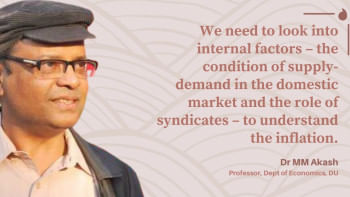
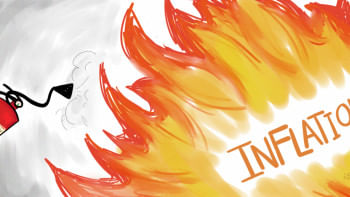
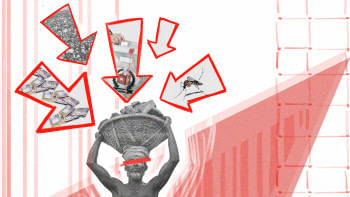





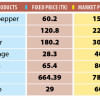
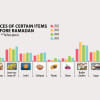


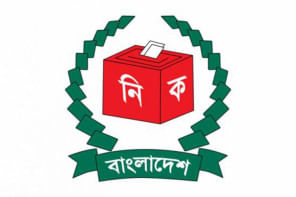
Comments